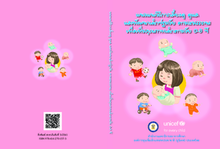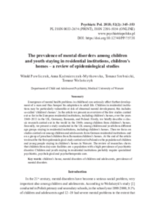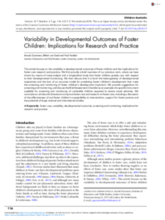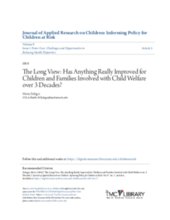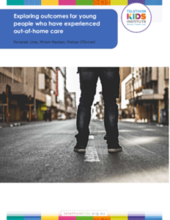Displaying 221 - 230 of 496
The guidelines provide information for ECD professionals and parents about holistic child development, linked to the national Early Learning and Development Standards.
This paper aims at describing how caregivers at an institution for motherless infants in rural Tanzania perceive infancy, caring and sensitivity in their everyday context.
Through this study, data were collected through interviews with 23 care leavers in Ghana to examine their challenges and the factors that influence their coping mechanisms.
This 5-minute video from the Center on the Developing Child at Harvard University explores the development and use of core capabilities — known as executive function and self-regulation skills — from early childhood into adolescence and adulthood.
The first online consultation on the Nurturing Care Framework for early childhood development was held between 24th January and 6th February, a summary of the responses submitted will be available in March.
This article presents an overview of the few studies carried out so far in the European residential institutions, including children’s homes, over the years 1940–2011 in the UK, Germany, Romania, and Poland.
This article focuses on the variability in developmental outcomes of foster children and the implications for foster care research and practice.
Reframing Early Childhood Development and Learning is a communications toolkit for building public support in Kenya for better child development policies and programmes.
This paper reflects on: what’s better or not after 30 years; whether legislation and financing are aligned with child welfare’s goals of safety, permanency and well-being; and what remains to be done to improve the outcomes of children and youth in foster care or otherwise involved with child welfare.
For this study, physical and mental health, school achievement, justice involvement and child protection contact were explored for three cohorts of children in Australia born between 1 January 1990 and 30 June 1995.

